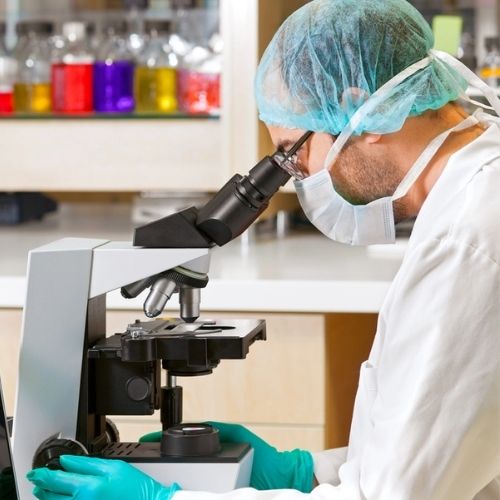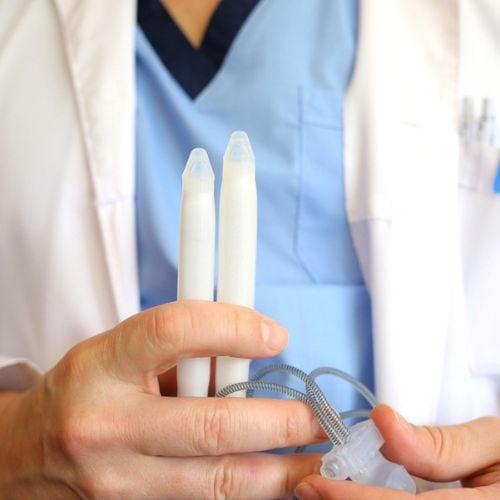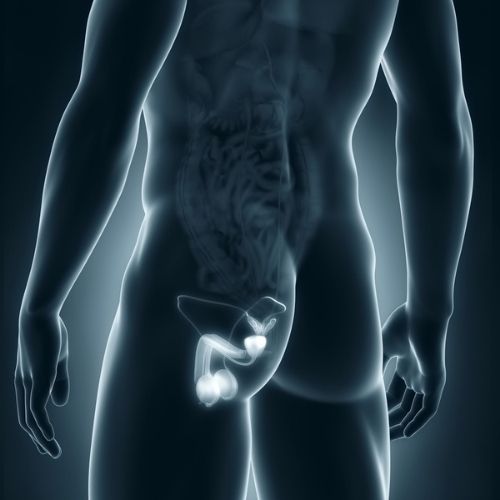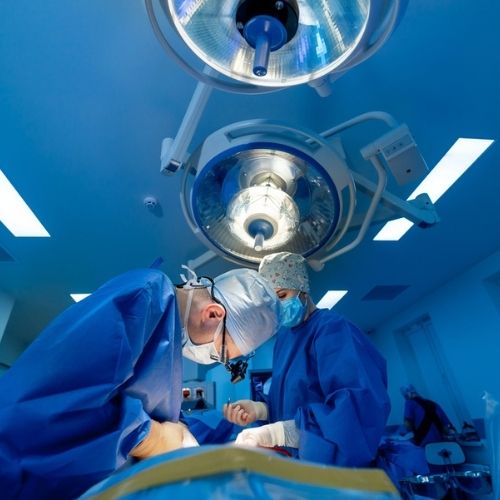Male infertility concerns have become increasingly common in recent decades. Worldwide, the total sperm count decreased by 62.3 percent. Researchers continue to investigate the potential causes. Possibilities range from environmental toxins to lifestyle factors. A growing body of research suggests that our constant companion, the smartphone, may play a role in male reproductive health and overall sperm health.

What is the connection between mobile phones and sperm quality?
Recent research has revealed a concerning association between frequent cell phone use and reduced semen quality in young men. A comprehensive cross-sectional study looked at men aged 18 to 22 and evaluated semen samples from the participants.
The study found that participants who used their phones more than 20 times daily had a 21% higher risk of low overall sperm count compared to those who used their phones less frequently. Additionally, these frequent users showed a 30% higher risk of low sperm concentration, an important parameter in semen analysis.
This new study is significant because it represents one of the most comprehensive investigations into mobile phone usage and its potential impact on reproductive medicine outcomes. It adds to the growing evidence from other observational studies and meta-analysis research that our modern lifestyle may be contributing to declining male fertility rates.
How mobile phones can impact the reproductive system
Mobile phones emit low-level radiofrequency electromagnetic fields (RF-EMF), also known as cell phone radiation. When operating at maximum power, smartphones can generate enough heat to raise the surrounding tissue temperature by up to 0.5 degrees Celsius (up to 33 degrees Fahrenheit).
This heat generation, combined with electromagnetic field exposure, may potentially affect the testes and sperm production quality, especially if a man keeps his phone in his pocket.
Ways in which cell phone usage can influence the reproductive system include:
- Heat generation from electromagnetic waves affecting testicular temperature.
- Potential cellular damage from radiofrequency radiation exposure to the testicles.
- Possible disruption of hormone production related to sperm development.
- Impact on sperm morphology (shape) and sperm motility (movement).
Importantly, research has shown that sperm viability, or the percentage of live sperm in semen samples, along with other semen parameters, may be affected by prolonged exposure to cell phone radiation. However, the extent of these effects requires more research.
Does more advanced tech mean better semen quality?
Interestingly, recent research suggests that as mobile phone technology has advanced, its potential to impact semen quality has decreased. The strongest associations between the use of mobile phones and lower sperm counts were observed with older 2G and 3G phones. In comparison, the effects appear to be less severe with modern 4G and 5G technology.
This improvement is likely due to the reduced output power required by newer phone technologies, which emit lower levels of electromagnetic radiation while maintaining connectivity and functionality.
Should you be concerned about your cell phone affecting your fertility?
While studies have found associations between mobile phone usage and changes in quality parameters of semen, it’s important to understand that correlation doesn’t equal causation. In other words, just because two things happen together doesn’t mean one causes the other. It is important to remember that the current research has limitations, including:
- Most studies are observational rather than controlled clinical trials.
- Many factors that could influence sperm health aren’t always accounted for in questionnaires.
- The relationship between sperm count and actual fertility potential is complex.
- Self-reported data from participants may not always be accurate.
Laboratory studies in animal models have shown that cell phone radiation can affect sperm production and testicular tissue. However, translating these findings to human fertility can be challenging.
What other things can affect semen parameters?

The effects of mobile phone use are just one potential factor affecting male fertility. Other significant contributors to changes in semen quality and sperm parameters include:
- Environmental toxins and pollutants.
- Obesity and metabolic disorders.
- Medical conditions like obstructive azoospermia.
- Chronic stress.
- Poor dietary habits.
- Sedentary lifestyle.
- Smoking and excessive alcohol consumption.
- Age-related changes in sperm morphology and motility.
Rather than focusing solely on smartphone use, men should adopt a comprehensive approach to reproductive health that addresses multiple lifestyle factors. A holistic strategy can often be more effective than targeting individual risk factors alone.
Are there practical ways to protect male fertility?
While research continues, men concerned about fertility can take several steps to minimize potential risks:
Phone usage habits
- Avoid carrying your smartphone in your pants pocket when possible.
- Use speakerphone or headphones for calls instead of holding the phone against your head.
- Limit cell phone usage.
- Keep phones in bags, backpacks, or briefcases rather than close to the body.
- Consider limiting Wi-Fi and Bluetooth exposure when not needed.
General fertility health
- Maintain a healthy weight through balanced nutrition and regular exercise.
- Avoid smoking and limit alcohol consumption.
- Manage stress levels effectively.
- Keep the scrotal area cool by avoiding tight clothing and excessive heat exposure.
- Consider a comprehensive semen analysis if you’ve been trying to conceive for over a year.
- Discuss IVF or other reproductive medicine options if natural conception proves challenging.
When to seek professional help for male fertility
While research suggests a potential association between cell phone use and sperm quality, the evidence isn’t strong enough to warrant dramatic lifestyle changes. But suppose you’ve taken simple precautions (such as limiting smartphone proximity to reproductive organs) and made appropriate lifestyle changes, and your fertility has not improved. In that case, it may be time to seek professional guidance.
Sperm health encompasses more than just count. Tower Urologists will assess your sperm motility, viability, and morphology to provide a comprehensive picture of your male fertility. Fortunately, even men with lower total sperm count can often successfully father children with appropriate medical support, including advanced reproductive medicine techniques when necessary.
Consider Tower Urology for your reproductive health
Do you have questions or concerns about your fertility or sexual health? Tower Urology is here to help men in Los Angeles optimize their reproductive potential. Our experienced team of urologists provides comprehensive evaluation and treatment for all aspects of male fertility and sexual health.
Our approach is personal—we treat patients, not just pathology.
We invite you to establish care with Tower Urology. Please make an appointment online or call us at (310) 854-9898.
Tower Urology is a proud affiliate of Cedars-Sinai Medical Center, ranked #1 in California and #2 nationwide by U.S. News & World Report. This partnership reflects our dedication to delivering the highest standard of urologic care alongside the best urologists in Los Angeles. Our years of experience and access to Cedars-Sinai’s world-class facilities ensure that our exceptional and innovative urological care positions Tower Urology as a leader in Southern California.
Tower Urology is conveniently located for patients throughout Southern California and Los Angeles, including Beverly Hills, Santa Monica, West Los Angeles, West Hollywood, Culver City, Hollywood, Venice, Marina del Rey, Burbank, Glendale, and Downtown Los Angeles.
Frequently asked questions about sperm count
According to the World Health Organization (WHO), a normal sperm count is at least 39 million sperm per milliliter of semen. However, what is considered a normal sperm count can range from approximately 40 million to 300 million sperm per milliliter.
It can be hard to know if you have a low sperm count without a sperm count test, as most men don’t have any noticeable signs or symptoms. However, the inability to conceive can be a telltale sign of issues with fertility or sterility in men. After one year of trying to conceive without success, it’s suggested that you reach out to your healthcare provider.
While there is no definitive way to increase sperm count, lifestyle changes can help improve fertility for men. Eating a healthy diet, engaging in regular exercise, maintaining a healthy weight, and avoiding risk factors such as cell phone radiation and environmental toxins can all contribute to overall well-being. Treating underlying conditions with the help of a healthcare provider, such as the team at Tower Urology, can also help ensure that there are no barriers to your sperm count or quality.
Sources
Association between self-reported mobile phone use and the semen quality of young men
https://www.fertstert.org/article/S0015-0282(23)01875-7/fulltext
Causes, effects, and molecular mechanisms of testicular heat stress
https://pubmed.ncbi.nlm.nih.gov/25456164/
Semen Analysis
https://www.ncbi.nlm.nih.gov/books/NBK564369/
Temporal trends in sperm count: a systematic review and meta-regression analysis of samples collected globally in the 20th and 21st centuries
https://academic.oup.com/humupd/article/29/2/157/6824414?login=false















































































